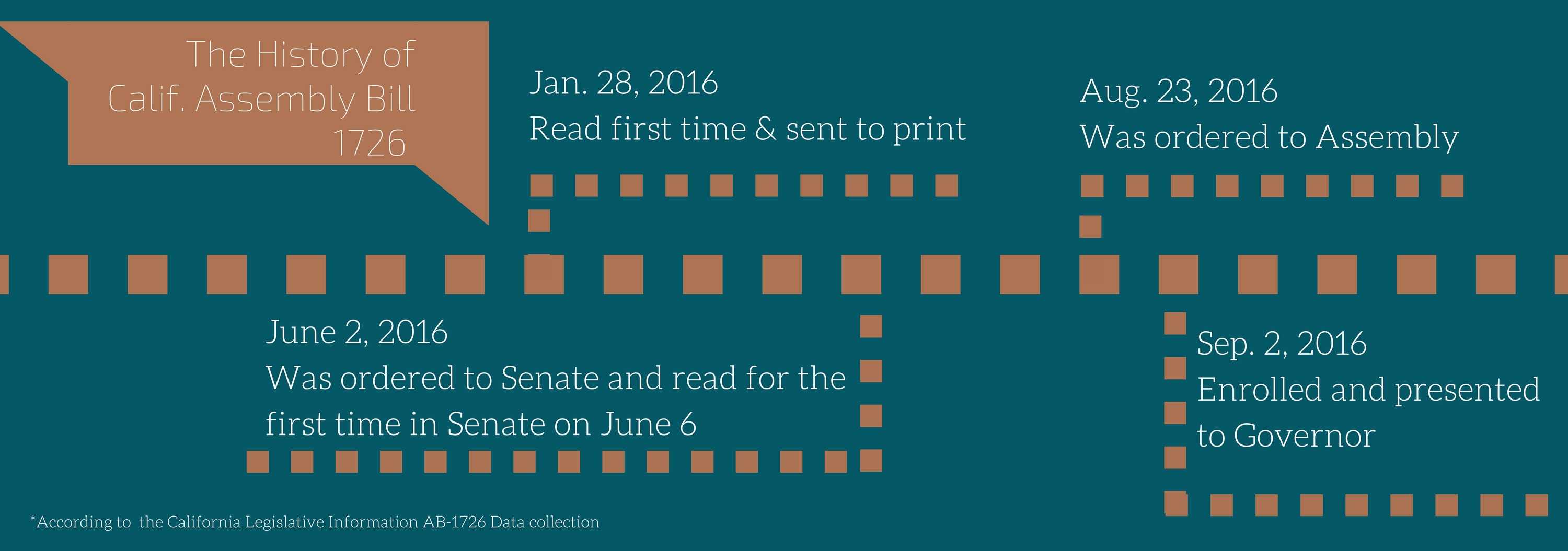ach year, people will fill out their paperwork, only to hesitate when they get to the section labeled “ethnicity.” While the list of ethnicities on that paper may be long, many skim the paper several times, only to discover that their ethnicity is nowhere on the list. Instead, they check themselves off as generically “Asian” or are left no choice but to say “Other.”
According to the California Legislative Information AB-1726 Data collection, California’s Assembly Bill 1726 aims to divide the term “Asian” into more specific groups, including Bangladeshi, Pakistani and Taiwanese, as well as add more Native American and Pacific Islander groups. The bill will affect only the Department of Industrial Relations and the Department of Fair Employment and Housing, in other words only affecting wages and employment.
While some applaud the bill’s intention to make demographics more specific, others deem the differentiation of ethnicities to be racist. Regardless, it was enrolled on Aug. 30 2016 and presented to Calif. governor Jerry Brown on Sep. 2 2016.

Senior Marcus Plutowski is among those that dislike the bill. He sees it as one that could potentially lead to other more discriminatory bills concerning race. But even aside from racism, he simply finds it unnecessary and inappropriate for the government to be delving into such specifics when it comes to a person’s race.
“You don’t want to set a precedent where the government is analyzing what race you are and dividing you based on that,” Plutowski said. “Once the government starts doing that much stuff about what you are as a person, I feel like it’s an invasion of privacy, it’s attacking people’s ancestry.”
Freshman Mohana Nukala opposes the bill too, but for a different reason. He believes that while it is true that there are many different Asian ethnicities, he doesn’t think they should be divided further. And although he likes the idea of being able to identify as a more specific ethnicity, he doesn’t believe that one’s ethnicity should have any effect on their employment or housing.
It should be based on the education level and the perception to work hard.” Freshman mohana nukala
Meanwhile, junior Amita Mahajan thinks this bill will have positive reverberations. To Mahajan, narrowing the focus on specific minorities would lead them to financial help that was more targeted towards them. Mahajan points out that this is particularly important when it comes to separating Asians as the different Asian countries have largely differing economic standings.
“They should be split because it’s not really fair for people who don’t have the economic resources to compete against people who do have the economic resources,” Mahajan said. “One of the main reasons that… we try to help [African Americans] out so much and try to restabilize things is because of their economic situation and seeing as some of the minorities that are Asian American are in the same economic situation, they should be given the same sort of treatment to get them to a level with greater equality.”
Plutowski, however, points out how there’s a flaw behind that logic in that within every minority, there are different economical standings, and it’s rather impossible to come up with a solution for all of them. He argues that dividing the Asian ethnicity would overlook other inequalities such as those between Polish Americans and British Americans.
“Polish Americans are typically worse off than British Americans and no one cares,” Plutowski said. “You can’t make the argument that ‘oh Vietnamese people and Japanese people are separated due to racism’ because in the end… there’s no evidence that the stereotypical racist white American has any differing opinions on Vietnamese versus Japanese.”
Yet no matter what happens, the bill now lies in the governor’s hands. And even if the governor does approve it, it could possibly mean nothing more than a few more bubbles on another piece of size four-font paperwork.









